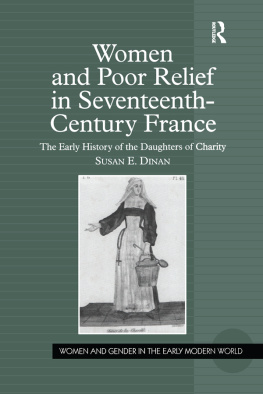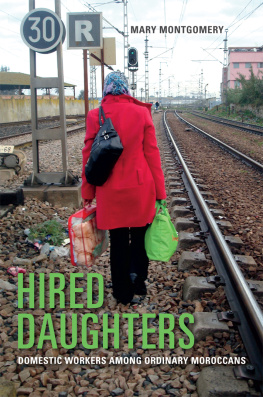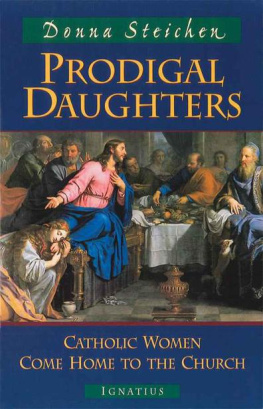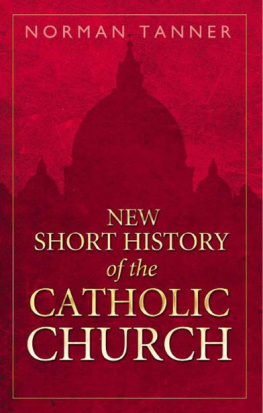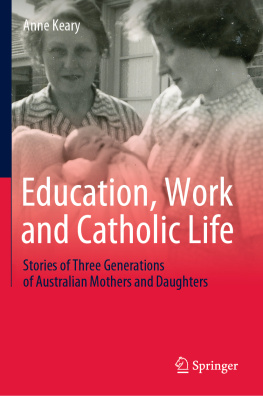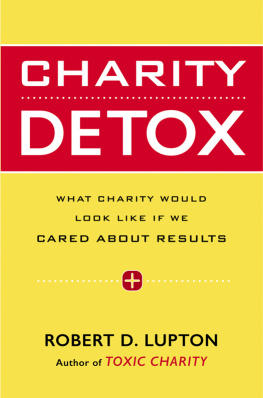WOMEN AND POOR RELIEF IN
SEVENTEENTH-CENTURY FRANCE
Women and Gender in the
Early Modern World
Series Editors: Allyson Poska and Abby Zanger
In the past decade, the study of women and gender has offered some of the most vital and innovative challenges to scholarship on the early modern period. Ashgates new series of interdisciplinary and comparative studies, Women and Gender in the Early Modern World, takes up this challenge, reaching beyond geographical limitations to explore the experiences of early modern women and the nature of gender in Europe, the Americas, Asia, and Africa. Submissions of single-author studies and edited collections will be considered.
Titles in the series include:
Salons, History, and the Creation of 17thCentury France
Mastering Memory
Faith E. Beasley
Religious Women in Golden Age Spain
The Permeable Cloister
Elizabeth A. Lehfeldt
Childbirth and the Display of Authority in Early Modern France
Lianne McTavish
The Power and Patronage of Marguerite de Navarre
Barbara Stephenson
Women and the Book Trade in Sixteenth-Century France
Susan Broomhall
Publishing Womens Life Stories in France, 16471720
From Voice to Print
Elizabeth C. Goldsmith
Women and Poor Relief in
Seventeenth-Century France
The Early History of the Daughters of Charity
SUSAN E. DINAN
University Honors College,
William Paterson University, USA
First published 2006 by Ashgate Publishing
Published 2017 by Routledge
2 Park Square, Milton Park, Abingdon, Oxon OX14 4RN
711 Third Avenue, New York, NY 10017, USA
Routledge is an imprint of the Taylor & Francis Group, an informa business
Copyright Susan E. Dinan 2006
The author has asserted her moral right under the Copyright, Designs and Patents Act, 1988, to be identified as the author of this work.
All rights reserved. No part of this book may be reprinted or reproduced or utilised in any form or by any electronic, mechanical, or other means, now known or hereafter invented, including photocopying and recording, or in any information storage or retrieval system, without permission in writing from the publishers.
Notice:
Product or corporate names may be trademarks or registered trademarks, and are used only for identification and explanation without intent to infringe.
British Library Cataloguing in Publication Data
Dinan, Susan E.
Women and poor relief in seventeenth-century France : the early history of the
Daughters of Charity. (Women and gender in the early modern world)
1. Daughters of Charity of St. Vincent de Paul History 2. Women Religious
life France History 17th century 3. Sisterhoods France History 17th
century 4. France Church history 17th century
I. Title
271.91044
Library of Congress Cataloging-in-Publication Data
Dinan, Susan E.
Women and poor relief in seventeenth-century France : the early history of the
Daughters of Charity / Susan E. Dinan.
p. cm. (Women and gender in the early modern world)
Includes bibliographical references and index.
ISBN 0754655539 (alk. paper)
1. Daughters of Charity of St. Vincent de Paul History 17th century. 2. Catholic
Church Charities. 3. Women Services for. 4. Poor Services for. 5. France
Church history 17th century. 6. France Social conditions 17th century.
I. Title. II. Series.
BX4463.F8D56 2006
271.91044dc22
2005021016
ISBN 13: 978-0-7546-5553-4 (hbk)
Contents
This book owes much to the many people who have so generously supported my efforts. Early on, when I was discovering that I wanted to pursue the study of history, Joan Jacobs-Brumberg introduced me to the field of womens history and David Pinckney to the field of French history. Their enthusiasm for their subjects proved quite contagious. Peter Fritzsche taught me how to think like an historian and started me on the process of writing like one.
This book began as a dissertation at the University of Wisconsin under the gentle, but certain, guidance of Robert Kingdon. At Wisconsin I was fortunate that Suzanne Desan and Dominico Sella also served as my mentors. I made endearing friendships, on the personal and professional level, with Susan Boettcher, Kathleen Comerford, Timothy Fehler, Michael Lynn, Alexandra Lord, and Karen Speirling; all of whom read sections of this work in its earliest stages.
A seminar at the Folger Institute on Gender and Sanctity led by Alison Weber gave me the opportunity to reflect upon the faith of the Daughters of Charity providing me with a comparative framework for my ideas.
A. Lloyd Moote graciously invited me to his early modern seminar at Princeton offering me a place in which to exchange ideas with a broad range of scholars. He also read sections of this work and offered helpful conceptual guidance.
Colin Jones came to my aid when I was a graduate student sharing with me his knowledge of the Daughters of Charity and an index of resources at the Archives Nationales. For a renowned scholar to have taken such an interest in the project of a novice exemplifies the collegiality that can enrich our discipline.
My colleagues at Long Island University have helped see this project to fruition, and they include Paul Sherwin, Kathryn Hill-Miller, and Debra Meyers. I am especially grateful to Jeanie Attie and Belinda Kremer who read this manuscript in its entirety and offered invaluable editorial guidance. The wonders worked by the Interlibrary Loan department at Long Island University cannot be overstated.
I am fortunate to have been welcomed into a broad community of scholars of early modern gender and religion who have shared their enthusiasm for this project with me they include Rene Baernstein, Jodi Bilinkoff, Cynthia Cupples, Sylvia Evangeliste, Elizabeth Lehfeldt, Amy Leonard, Alison Poska, and Merry Wiesner-Hanks.
In France I was offered assistance by the staffs of the Archive de Assistance Publique and the Archives Nationales in Paris and the Archive Dpartmentale in Angers. My greatest debt of gratitude is to Soeur Anne-Marie Magermans, archivist at the Motherhouse of the Daughters of Charity in Paris. She allowed an American graduate student whose shoes squeaked and coat rustled into the quiet splendor of her convent, and gracefully mitigated the concerns of her sisters over allowing a secular scholar access to their documents. She not only shared materials with me, but she helped me make better sense of them by speaking of her own religious vocation.
At the archives of the Daughters of Charity in Albany, New York, Sister Elaine Wheeler offered me considerable direction, and a letter that helped me gain access to the Companys archives in Paris. She has very patiently awaited the arrival of this book, and has been its constant advocate.
I could not have asked for a better team of editors than Erika Gaffney, Allyson Poska, and Abby Zanger. I would also like to thank the anonymous reviewer of this text for such thoughtful and constructive criticisms.
This project was funded by the University of Wisconsin and Long Island University and was improved by a National Endowment for the Humanities Summer Institute.

